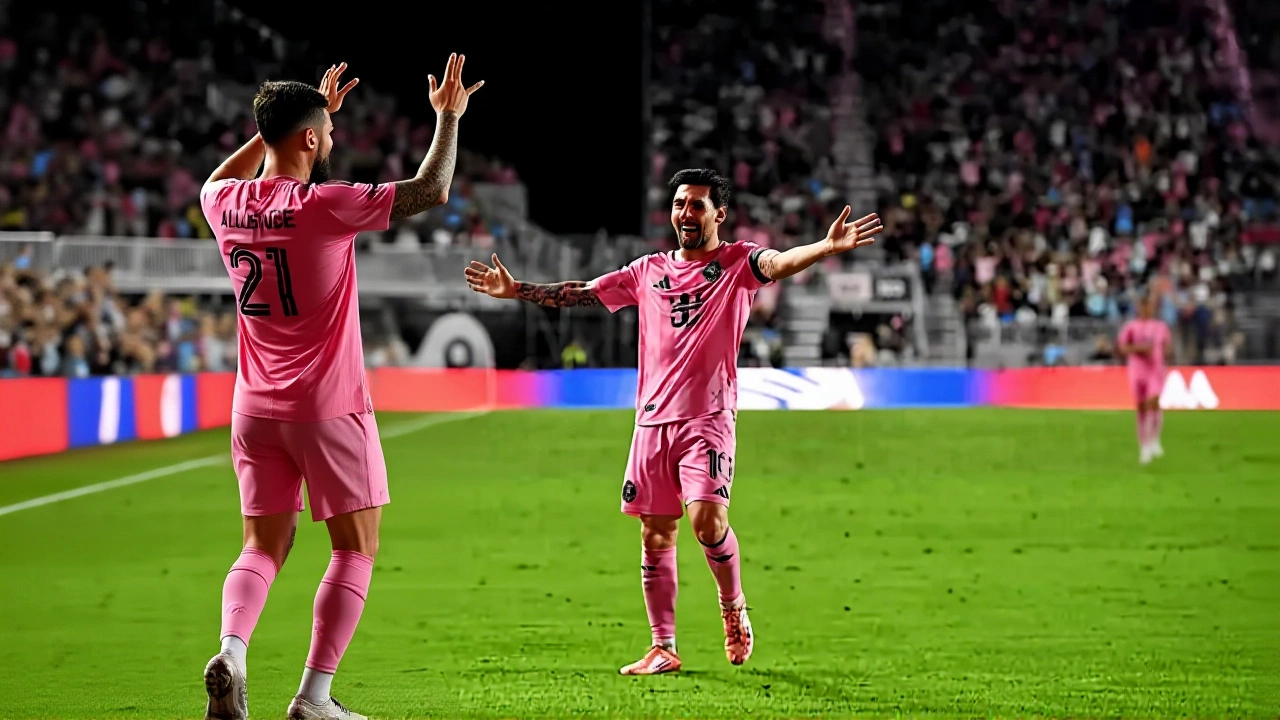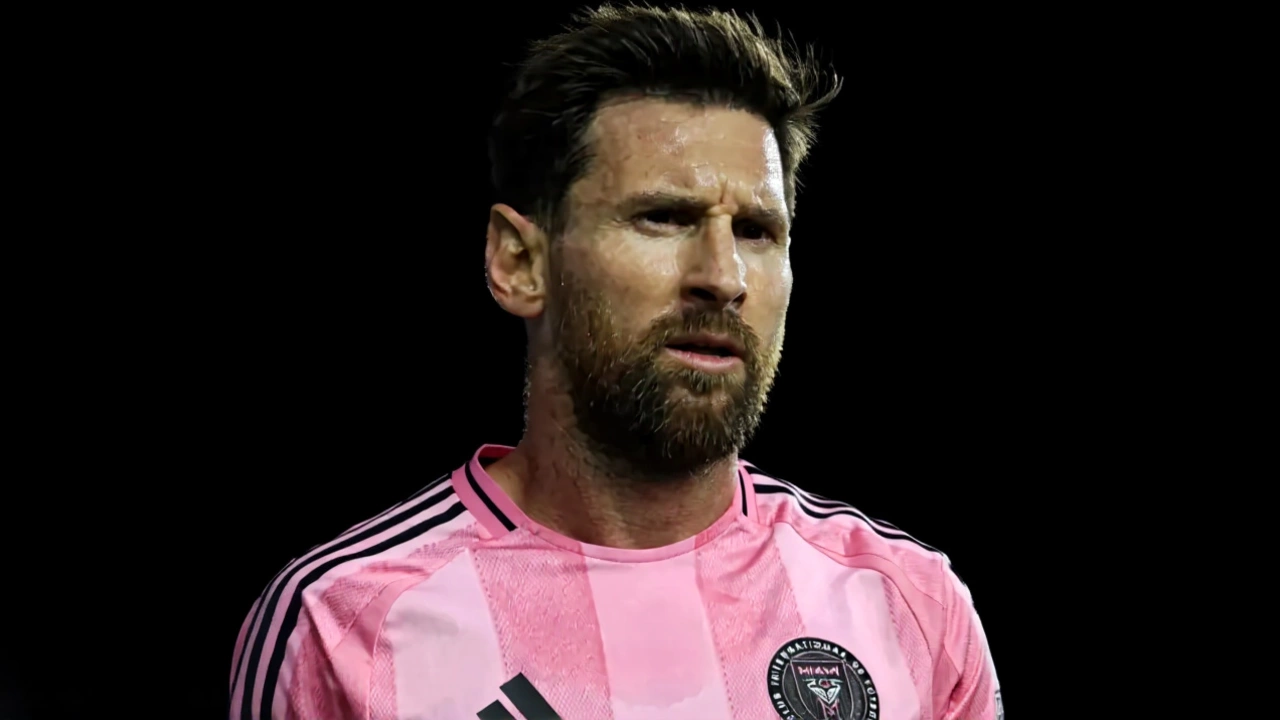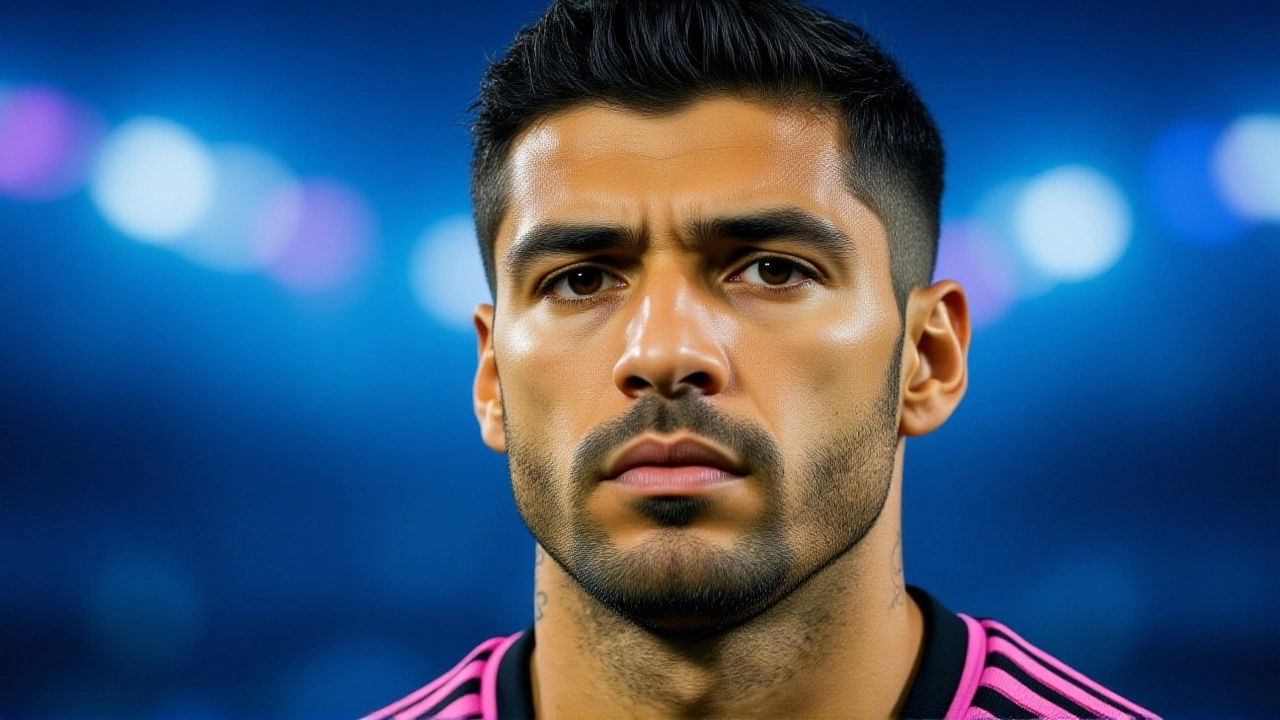When Javier Mascherano left Luis Suárez on the bench for Inter Miami’s most important match of the season, no one expected the outcome. But on Sunday, November 23, 2025, at TQL Stadium in Cincinnati, Ohio, the Inter Miami CF crushed FC Cincinnati 4-0 in the Eastern Conference semifinal, advancing to the MLS Cup final with a performance that stunned even the most loyal fans. The twist? Suárez, the 38-year-old Uruguayan legend who’s been the heartbeat of this team since 2023, didn’t start. He didn’t even warm up until the 76th minute. And yet, Mascherano didn’t just get away with it—he was praised for it.
Why Bench a Legend?
It wasn’t a punishment. It wasn’t even a slight. Mascherano, the 40-year-old Argentine former captain of Argentina and Barcelona, called it a “tactical recalibration.” Suárez had played 90 minutes in the previous playoff game against New England Revolution, then sat out the match before that due to a one-game suspension for a yellow card accumulation. With the team facing a high-intensity, physical opponent in Cincinnati, Mascherano opted for pace, mobility, and fresh legs. Enter Mateo Silvetti, the 19-year-old Argentine academy product who’d barely been on the radar before October. Silvetti didn’t just fill in—he exploded. He set up Lionel Messi’s opening goal with a diagonal run that split two defenders, then scored the second himself with a low, left-footed finish after a slick one-two with Messi. By the time Facundo Allende added two more goals—his first multi-goal game since joining from Argentina’s Liga Profesional—the game was already over. Inter Miami controlled 62% of possession, fired 21 shots (10 on target), and completed 789 passes. Cincinnati, by contrast, managed just 11 shots and 386 passes.The Reaction: Respect, Not Resentment
When Suárez finally stepped onto the pitch in the 76th minute, the crowd at TQL Stadium gave him a standing ovation. He didn’t score. Didn’t need to. He just smiled, clapped, and pointed to the bench. After the final whistle, Mascherano didn’t dodge the question. “It wasn’t easy decision but the Luis reacted simply admirable,” he told reporters, his voice thick with emotion. “He’s not just a player. He’s a leader who understands the team comes first.” That’s the quiet brilliance of Mascherano’s leadership. He didn’t make this decision lightly. In fact, he refused to talk about Suárez’s role at all in the days leading up to the match. “It would be disrespectful,” he told reporters on November 22, according to World Soccer Talk. That silence spoke louder than any press conference. Suárez, who’s recorded 10 goals and 11 assists in 30 MLS appearances this season—plus 17 goals and 17 assists across all competitions—didn’t protest. He didn’t sulk. He trained like a starter. Showed up like a captain. And when called upon, he gave the team exactly what it needed: calm, experience, and professionalism.
More Than One Decision
This wasn’t just about Suárez. Mascherano also handed the starting goalkeeper role to 23-year-old Rocco Rios Novo, replacing veteran Oscar Ustari. Rios Novo didn’t just keep a clean sheet—he made three critical saves in the first half, including a diving stop on a point-blank header from Cincinnati’s striker. Inter Miami’s backline has now gone 207 minutes without conceding in the playoffs. That’s the longest streak in MLS this postseason. Silvetti’s rise has been meteoric. In just two playoff games, he’s scored one goal and added two assists. He’s fast, fearless, and has an uncanny sense of space—something Suárez, for all his genius, can no longer replicate at 38. The competition for the starting striker spot is now real. And that’s exactly what Mascherano wanted.What This Means for Inter Miami
Inter Miami, founded in 2020 and owned by David Beckham, Jorge Mas, Marcelo Claure, and Masayoshi Son, is now 90 minutes away from their first-ever MLS Cup final. They’ll face either the Columbus Crew or New York City FC in the Eastern Conference final, set for November 29–30, 2025. But this isn’t just about trophies. It’s about identity. Before Mascherano took over mid-season, Inter Miami was a star-studded squad drowning in ego. Messi carried the team. Suárez was the emotional core. But now? The team has a heartbeat that doesn’t rely on one man. It’s built on depth, discipline, and a culture where veterans lead by example—even when they’re not playing. The Argentine coach has turned a team of celebrities into a unit. And in doing so, he’s rewritten the playbook for managing aging superstars in a league that’s rapidly evolving. Suárez isn’t done. He’s just been redefined.
What’s Next?
The Eastern Conference final will be a test of endurance. Columbus Crew, with their relentless pressing, or New York City FC, with their clinical finishing, will push Inter Miami to its limits. But if Mascherano can keep the squad balanced—veterans like Messi and Suárez leading by presence, young players like Silvetti and Rios Novo delivering on the pitch—this team isn’t just a contender. They’re a phenomenon.Frequently Asked Questions
Why did Mascherano bench Luis Suárez for such a big game?
Mascherano made a tactical decision based on physical conditioning and match dynamics. Suárez had played 90 minutes in the prior playoff game and was returning from a suspension. With FC Cincinnati’s high-energy pressing style, Mascherano prioritized pace and stamina, inserting 19-year-old Mateo Silvetti, who delivered a goal and an assist. Suárez remained available as a substitute and entered the match in the 76th minute, showing his professionalism.
How has Luis Suárez performed this season despite being benched for the semifinal?
Suárez has been vital to Inter Miami’s 2025 campaign, scoring 10 goals and providing 11 assists in 30 MLS appearances. Across all competitions—including the Leagues Cup, Club World Cup, and Concacaf Champions Cup—he’s tallied 17 goals and 17 assists. His leadership and finishing remain elite, and his ability to adapt to a rotational role has been key to team harmony under Mascherano.
Who is Mateo Silvetti, and why is he suddenly playing so well?
Silvetti is a 19-year-old Argentine forward who came through Inter Miami’s academy. He made his MLS debut in August and was largely a bench player until the playoffs. His speed, intelligent movement, and composure in front of goal have made him a perfect fit for Mascherano’s counter-attacking system. In two playoff games, he’s recorded one goal and two assists, proving he can handle high-pressure moments.
What’s the significance of Rocco Rios Novo starting in goal?
Rios Novo, 23, replaced veteran Oscar Ustari as the starter for the semifinal and delivered three key saves in a clean sheet. His calmness under pressure and ability to distribute quickly have been crucial to Inter Miami’s defensive solidity, which has now stretched to 207 minutes without conceding in the playoffs. His promotion signals Mascherano’s willingness to trust youth—even in critical moments.
What does this win mean for Inter Miami’s chances in the MLS Cup final?
This win proves Inter Miami is no longer just a star-powered exhibition team. They’ve developed tactical depth, defensive discipline, and a culture where veterans and youth coexist. With Messi still at peak form and Silvetti emerging as a reliable forward, they’re the most balanced team left in the playoffs. Facing either Columbus Crew or NYCFC, they enter the conference final as favorites—and their first MLS Cup final is now within reach.
Is there a pattern to Mascherano’s player rotation decisions?
Yes. Mascherano rotates based on opponent style, fatigue levels, and psychological readiness—not just reputation. He benched Suárez after a suspension and a 90-minute game. He started Rios Novo over Ustari because of his distribution skills. He gave Silvetti the nod over veteran forwards because of pace. His decisions are data-informed, emotionally intelligent, and always aimed at maximizing team cohesion over individual egos.
